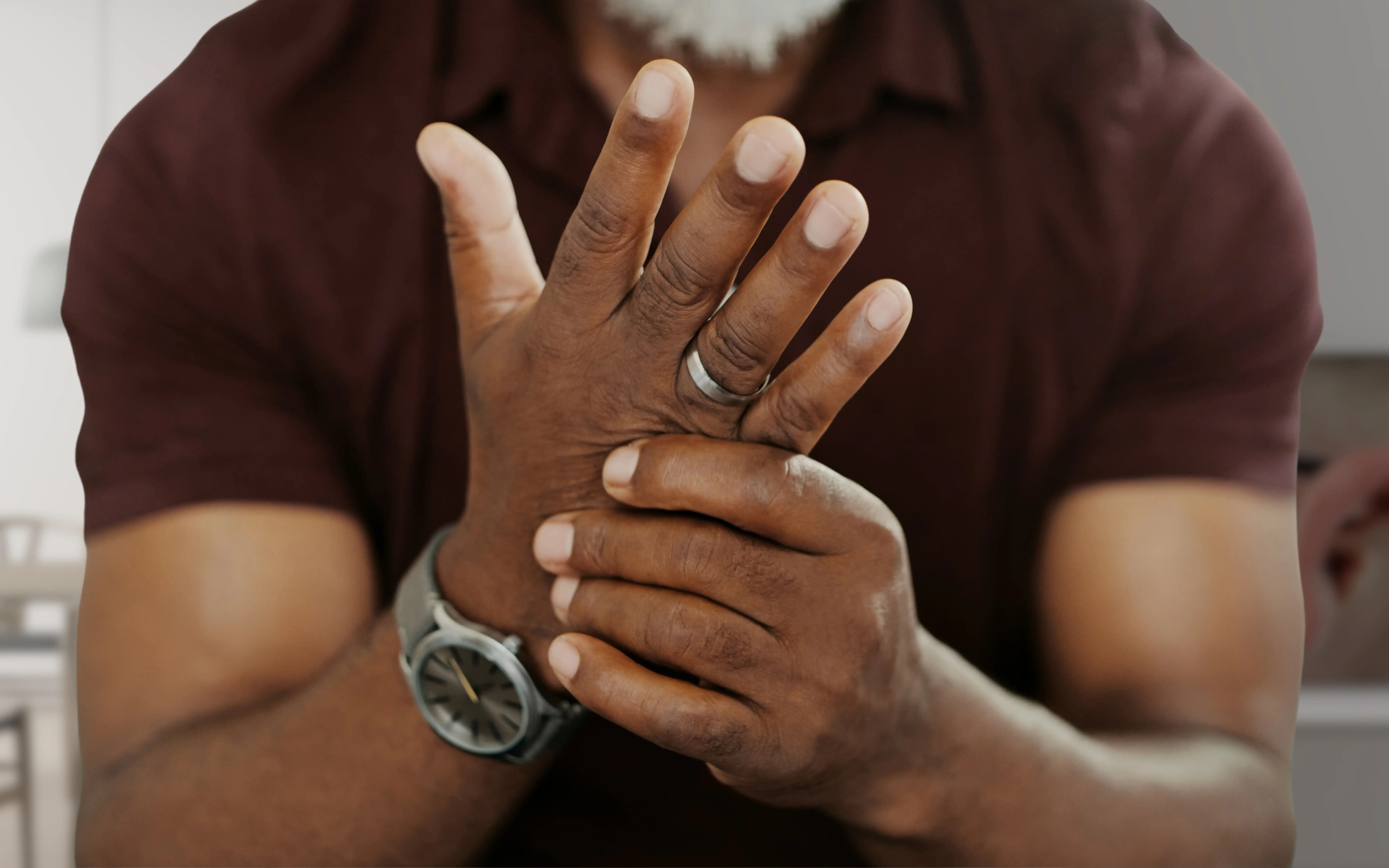Understanding Neuropathic Pain
Understand neuropathic pain, its causes, symptoms, and impact on daily life. Learn about diagnosis, treatment options, and effective ways to manage this chronic nerve-related pain.

Written by Dr. Siri Nallapu
Reviewed by Dr. Dhankecha Mayank Dineshbhai MBBS
Last updated on 13th Jan, 2026

Imagine a constant burning sensation in your feet, even when they’re resting on a soft rug. Or a sudden, electric shock-like pain shooting down your leg for no apparent reason. This is the perplexing and often debilitating reality for millions living with neuropathic pain. Unlike typical pain that results from an injury like a cut or sprain, neuropathic pain stems from damage or dysfunction within the nervous system itself. It’s a false alarm, where nerves misfire and send incorrect pain signals to the brain. This article will demystify this complex condition. We'll explore its unique symptoms, uncover the common and uncommon causes, and guide you through the most effective medical and lifestyle strategies for managing neuropathic pain and reclaiming your quality of life. If your symptoms persist beyond two weeks, consult a doctor online with Apollo24|7 for further evaluation.
What is Neuropathic Pain? A Breakdown of the Nerve Damage
Neuropathic pain is a chronic condition that arises from damaged or malfunctioning nerve fibers. To understand it, think of your nervous system as a complex electrical wiring system. When this wiring is damaged whether from disease, injury, or infection—the signals get crossed. The nerves may send pain signals to the brain without any actual trigger (spontaneous pain), or they may overreact to normally non-painful stimuli, like a light touch or a change in temperature.
This type of nerve pain is often described as a burning, shooting, or stabbing sensation. It’s frequently chronic, meaning it persists for months or even years, and can be notoriously difficult to treat with standard painkillers like ibuprofen. The impact goes beyond the physical sensation; it can disrupt sleep, mood, and overall well-being, creating a challenging cycle to break.
How Neuropathic Pain Differs from Nociceptive Pain
It's crucial to distinguish neuropathic from nociceptive pain, as they are treated very differently. Nociceptive pain is the body's normal response to tissue injury—like the throbbing from a stubbed toe or the ache of a pulled muscle. It’s a warning system. Neuropathic pain, however, is not a symptom of an ongoing injury but is itself the disease process. It’s a malfunction of the nervous system. This key difference, often summarized as nociceptive vs neuropathic, is why a tailored treatment plan from a healthcare professional is essential for effective management.
Consult a Top Specialist
Recognizing the Signs: Symptoms of Neuropathic Pain
The symptoms of neuropathic pain are diverse and can vary greatly from person to person. They often occur in a specific area, like the hands and feet (a pattern known as a "stocking-and-glove" distribution in peripheral neuropathy), but can be more widespread.
Common Sensory Symptoms (Burning, Tingling, Shooting)
Burning or Cold Sensations: A persistent, deep burn or an unusual feeling of coldness in the affected area.
Pins and Needles Sensation: Also known as tingling or paresthesia, this is one of the most recognizable early signs.
Shooting or Electric Shock Pain: Sudden, sharp, and lancinating pains that can radiate along a nerve pathway.
Persistent Tingling or Numbness: A feeling of reduced sensation or "falling asleep" in a limb that doesn't go away.
Less Common but Debilitating Symptoms (Allodynia, Numbness)
Allodynia: This is a hallmark of nerve hypersensitivity, where a normally non-painful stimulus such as the weight of a bedsheet, a gentle breeze, or clothing brushing against the skin triggers a significant pain response.
Hyperalgesia: An exaggerated response to a painful stimulus. For example, a slight pinch might feel intensely painful.
Loss of Coordination: In some cases, the numbness and altered sensation can lead to clumsiness and a higher risk of falling.
If you are experiencing a combination of these peripheral neuropathy symptoms, especially a burning pain in feet or hands, it is important to seek a professional diagnosis.
The Root of the Problem: Common Causes of Nerve Damage
Neuropathic pain doesn't appear out of nowhere; it's always a consequence of an underlying issue affecting the nerves. Pinpointing the cause is the first step toward effective treatment.
Diabetes and Diabetic Neuropathy
Diabetes is the leading cause of neuropathic pain worldwide. Consistently high blood sugar levels can slowly damage the delicate walls of the small blood vessels that supply oxygen and nutrients to your nerves, particularly in the legs and feet. This condition, known as diabetic nerve pain, is a serious complication that requires diligent blood sugar management. Apollo24|7 offers convenient home collection for tests like HbA1c to help you monitor your long-term glucose control.
Infection (Shingles, HIV) and Neuropathic Pain
Certain infections can directly attack nerve tissues. The varicella-zoster virus, which causes shingles, can lead to postherpetic neuralgia—a severe and persistent nerve damage from shingles that continues long after the rash has healed. HIV/AIDS can also cause significant neuropathy, both from the virus itself and from some of the medications used to treat it.
Injuries and Accidental Nerve Damage
Physical trauma from accidents, surgeries, or repetitive stress can compress, stretch, or sever nerves. For example, a herniated disc in the spine can press on a nerve root, causing sciatica (pain radiating down the leg). Even after the original injury has healed, the nerve may remain damaged and continue sending pain signals.
Other Medical Conditions (Autoimmune, Vitamin Deficiencies
Autoimmune diseases like rheumatoid arthritis, lupus, and Guillain-Barré syndrome can cause inflammation that attacks the nerves. Furthermore, deficiencies in crucial vitamins, particularly B vitamins (B1, B6, B12) and Vitamin D, are well-known culprits behind nerve dysfunction. A simple blood test can check for these deficiencies.
Getting a Diagnosis: How Doctors Identify Neuropathic Pain
Diagnosing neuropathic pain involves a multi-step process, as there is no single test that can confirm it. A doctor will piece together the puzzle from your history, a physical exam, and specific tests.
The Importance of a Detailed Medical History
Your doctor will ask detailed questions about your pain: what it feels like, where it's located, when it started, and what makes it better or worse. They will review your full medical history, including any existing conditions like diabetes, past infections, or injuries.
Physical and Neurological Examinations
The doctor will perform a physical exam, checking your reflexes, muscle strength, and ability to sense light touch, temperature, and vibration. They may use specific tools to test for allodynia (e.g., with a cotton swab) or hyperalgesia.
Diagnostic Tests (Nerve Conduction Studies, Blood Tests)
Blood Tests: These are crucial for uncovering underlying causes like diabetes, vitamin deficiencies, thyroid problems, or signs of autoimmune disease.
Nerve Conduction Study (NCS) and Electromyography (EMG): These tests measure the electrical activity and speed of signals in your muscles and nerves, helping to locate the site of the damage and assess its severity.
Imaging Tests: An MRI or CT scan can help identify structural problems, such as a herniated disc or a tumor, that might be pressing on a nerve.
Consult a Top Specialist
Finding Relief: Treatment Options for Neuropathic Pain
Treating neuropathic pain often requires a multi-pronged approach. What works for one person may not work for another, so patience and persistence are key. The goal is usually management and improving function, rather than a complete cure.
First-Line Medications (Anticonvulsants, Antidepressants)
Standard pain relievers like NSAIDs are often ineffective. Instead, doctors prescribe medications designed to calm overactive nerves.
Anticonvulsants: Drugs like gabapentin for nerve pain and pregabalin (Lyrica) are commonly used first. They help stabilize nerve signals and reduce pain.
Antidepressants: Certain antidepressants, particularly duloxetine (Cymbalta) and amitriptyline, are effective at modulating the brain's chemistry to interrupt pain signals, even in people who are not depressed.
Topical Treatments and Pain Relievers
Topical Creams and Patches: Lidocaine patches can numb a specific painful area. Capsaicin cream, derived from chili peppers, works by depleting a chemical that contributes to pain signaling.
Pain Relievers: In severe cases, doctors may prescribe short-term use of opioid medications, but these are used with extreme caution due to the risk of dependence and side effects.
Advanced Interventional Procedures (Nerve Blocks, Stimulation)
For pain that doesn't respond to medication, several procedures can help:
Nerve Blocks: An injection of a local anesthetic or steroid directly into or around a nerve to block pain signals.
Spinal Cord Stimulation (SCS): A device is implanted that sends low-level electrical signals to the spinal cord to mask pain signals before they reach the brain.
Physical Therapy: A PT can teach you exercises to improve strength, coordination, and flexibility, which can reduce pain and prevent further problems.
Living Well: Managing Neuropathic Pain Daily
Beyond medications, daily self-management strategies are vital for coping with chronic pain and improving your quality of life.
Physical Therapy and Exercise
Regular, gentle exercise like walking, swimming, or yoga can improve blood flow to the nerves, reduce stiffness, and release endorphins, the body's natural painkillers. A physical therapist can design a safe program tailored to your needs.
The Role of Diet and Nutrition
Eating a balanced diet rich in anti-inflammatory foods and essential nutrients supports nerve health. Ensuring adequate intake of B vitamins, alpha-lipoic acid, and omega-3 fatty acids is particularly important. Managing blood sugar is non-negotiable for those with diabetic neuropathy.
Complementary Therapies (Acupuncture, Mindfulness)
Acupuncture: This traditional Chinese medicine technique may help stimulate nerves and muscles and boost the body's natural painkillers.
Mindfulness and Meditation: These practices can help you change your relationship with pain, reduce the stress and anxiety that often amplify it, and improve sleep quality.
The Future of Pain Management: Emerging Therapies
Research into neuropathic pain is ongoing. Scientists are exploring new drug targets, more sophisticated neuromodulation devices, and even gene therapy to provide more effective and targeted relief with fewer side effects. The future holds promise for more personalized and powerful treatment strategies.
Conclusion
Understanding neuropathic pain is the first crucial step toward managing it. While it can be a frustrating and complex condition, it is not something you have to face alone or without hope. By recognizing the unique symptoms, working with a healthcare provider to identify the underlying cause, and exploring a combination of medical treatments and lifestyle adaptations, you can develop a powerful toolkit for relief. Remember, managing chronic pain is a journey, not a sprint. Be patient with yourself, stay proactive in your care, and lean on the support of medical professionals. If you suspect you are dealing with nerve pain, take that first step and seek expert guidance to create a personalized plan for reclaiming your comfort and well-being.
Consult a Top Specialist
Consult a Top Specialist

Dr. Swarna Deepak K
General Physician/ Internal Medicine Specialist
20 Years • MBBS: MD (Internal Medicine) MRCP (UK), EDIC (European Diploma in Critical Care), IDCCM, IFCCM (Critical Care), FID (Royal Liverpool Academy)
Hyderabad
Apollo Hospitals Jubilee Hills, Hyderabad
(425+ Patients)

Dr. Dhanraj K
General Physician/ Internal Medicine Specialist
25 Years • MBBS, MD Internal Medicine - Osmania Medical College, Hyderabad
Hyderabad
Apollo Hospitals Jubilee Hills, Hyderabad
(425+ Patients)

Dr. Vivek D
General Physician
4 Years • MBBS
Bengaluru
PRESTIGE SHANTHINIKETAN - SOCIETY CLINIC, Bengaluru

Dr Bhargav Vuppumalla
General Physician/ Internal Medicine Specialist
5 Years • MBBS MD GENERAL MEDICINE
Bengaluru
Apollo Medical Center, Marathahalli, Bengaluru

Dr. Harshendra Jaiswal
General Physician/ Internal Medicine Specialist
12 Years • MBBS , MD (General medicine)
Kolkata
108 DHANA DHANVANTARI Clinic, Kolkata
(25+ Patients)
More articles from Nerve Pain
Frequently Asked Questions
1. What is the best medication for nerve pain?
There is no single 'best' medication, as effectiveness varies by individual. However, anticonvulsants (like gabapentin) and certain antidepressants (like duloxetine) are typically considered first-line treatments for various types of neuropathic pain, as they directly target nerve signaling.
2. Can neuropathic pain be cured?
In many cases, neuropathic pain cannot be fully 'cured' because the nerve damage may be permanent. However, it can almost always be effectively managed. The goal of treatment is to reduce pain to a manageable level, improve function, and enhance quality of life.
3. Are there any natural remedies for neuropathy?
Some people find relief with complementary approaches. These include supplements like alpha-lipoic acid and acetyl-L-carnitine (after consulting a doctor), maintaining a healthy diet rich in B vitamins, practicing regular gentle exercise, and using techniques like acupuncture or mindfulness meditation.
4. How can I sleep with neuropathic pain?
Neuropathic pain often worsens at night. To improve sleep, try establishing a calming bedtime routine, keeping your bedroom cool (heat can aggravate symptoms), ensuring loose bedding, taking prescribed medication as directed before bed, and practicing relaxation techniques like deep breathing.
5. Is burning pain in feet always diabetes?
While burning pain in feet is a classic sign of diabetic neuropathy, it is not the only cause. Other possibilities include alcohol abuse, vitamin B deficiencies, hypothyroidism, kidney disease, or chemotherapy. A proper medical evaluation is necessary to determine the exact cause.

